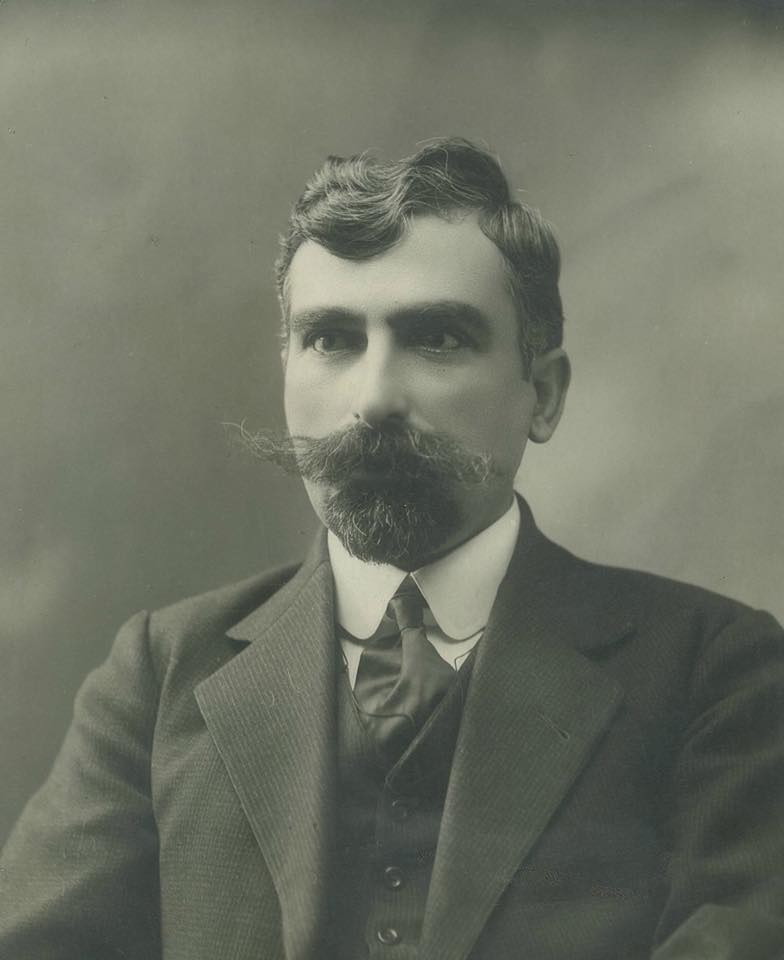Aram Manukian , also referred to as simply Aram , was an Armenian revolutionary, statesman, and a leading member of the nationalist Armenian Revolutionary Federation party. He is widely regarded as the founder of the First Republic of Armenia.
Born and educated in Russian Armenia, he was mostly active in Van, one of the largest cities in Turkish Armenia. He rose to prominence there as a community organizer. During the first months of World War I he worked with local Ottoman officials to de-escalate rising tensions until mid-April 1915, when Turkish forces laid siege to the city. He led the successful Armenian civilian self-defense of Van. As a result, tens of thousands avoided being deported and massacred by the Turkish government while the Armenian Genocide was underway. He briefly served as the head of the provisional government in Van.
Following the Russian Revolution and the collapse of the Caucasian front in 1917–18, Aram was "popular dictator" of the unconquered area around the city of Yerevan. In May 1918, he organized the defense against the advancing Turkish army, which was effectively stopped at the Battle of Sardarabad, preventing the complete destruction of the Armenian nation. Manukian played an important role in the establishment of the First Republic of Armenia and served as its first minister of internal affairs. He died of typhus in January 1919, short of his 40th birthday.
Aram Manukian was an advocate for self-reliance. He was noted for his ability to unite different sections of society for a common cause. He is widely considered by scholars to be the founder of the First Republic of Armenia. During the Soviet period, he, along with other prominent Dashnaks, was largely disregarded. Since 1990, attempts have been made to revive his memory in independent Armenia.
Wikipedia
✵
19. March 1879 – 29. January 1919
